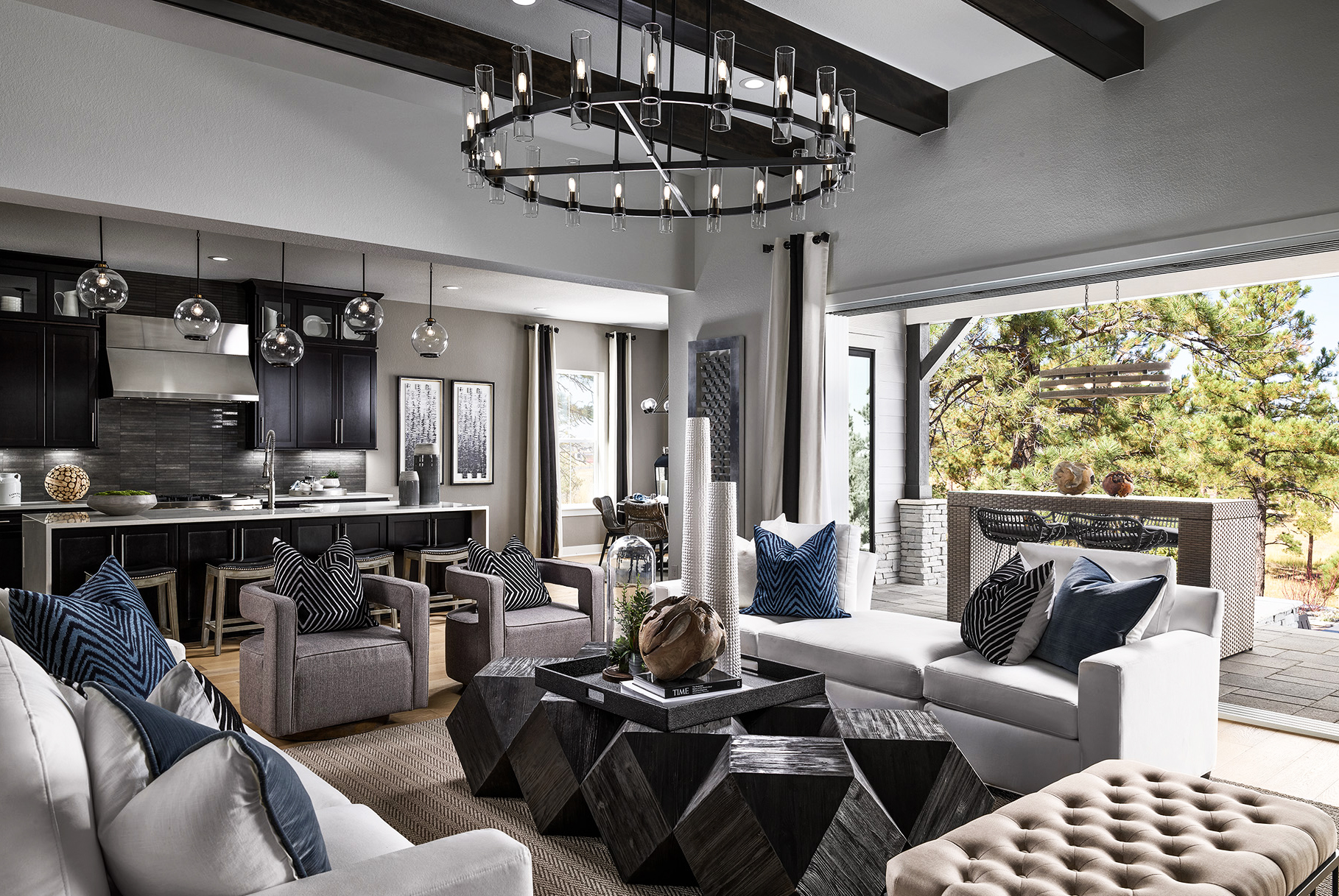
Do Your Models Support or Sabotage Your Commitment to Personalization?
Do your model homes strategically showcase the Included Features (hopefully you are not calling these “standards”) and Available Personal Choices (hopefully you are not calling these “upgrades”) and properly prepare your buyers for a fulfilling and enjoyable design studio experience? Or do your models waste this valuable opportunity to set proper expectations for how “personalization” works in your company and to reinforce a major point of differentiation between you and your competition?
Your model homes are tools for more than just selling homes. If you don’t have a design studio, your models ARE your design studio showroom. If you DO have a design studio, your models are an extension of your showroom floor.

Models (preferably professionally-merchandised models) should, first and foremost, sell homes. That means they should highlight the architectural strong points of the floorplan, appeal to the target market’s lifestyle and design style, assist buyers in understanding the plan’s possibilities, indicate construction quality and help buyers come to the conclusion that “this home is the right solution for me/my family.”
Nothing happens, with personalization or any other aspect of homebuilding, until there is a SALE. But most models I see in my travels all over the country and Canada, don’t powerfully communicate the builder’s promise to support their buyer’s needs to personalize their home, to convince buyers that they WILL be able to get a home that’s “just right for them”.
When I was a Vice President for a major interior merchandising firm for many years before I opened Success Strategies, I supervised literally hundreds of model home specification meetings and installations around the country. I know that a talented, smart merchandiser plays a critical role on your marketing team and in the ability of your model homes to convert prospective buyers into real buyers. But are YOU, the Builder or Marketing VP, providing enough strategic direction to your merchandiser regarding the depth, breadth, and specifics for the products you want to showcase in each of your model homes?

Toll Brothers model, merchandised by Possibilities for Design
Here’s just one example: if your model home has a powder room, hall bath and master bath, are you showcasing a different faucet, sink, cabinet style and finish, counter material and color, counter edge profile, vanity light fixture, mirror, flooring, toilet, and plumbing fixtures in each of those three bathrooms? I understand and support, that the style of the model, and other factors should influence the interior specifications, but don’t take the easy way out.
- If your interior design talent wants a white finish on the cabinets in all kitchens and bathrooms, then are there different cabinet styles which could work in each?
- If your interior design talent wants to use brushed nickel faucets and vanity light fixtures throughout the model, then perhaps the master bath and powder rooms can show higher level faucets while the hall bath can show the included faucet in that finish (again, provided the style works with the rest of the home).
- Or perhaps the finish or color doesn’t need to be the same in all bathrooms at all…maybe each bathroom can have its own unique personality and still support the style and design integrity of the model overall.
When demonstrating the model home, your top-notch New Home Specialist can say, “Mr. and Mrs. Lopez, our model homes feature just some of the many high-performing products available in our state-of-the-art design studio. You can choose from our quality Included Features or from the numerous Available Personal Choices reflecting a variety of styles, finishes, and investment amounts. Here at Builder X Homes, we’re excited to help you get more of the home you really want.” But that powerful speech doesn’t resonate very much if the model doesn’t appear to show much choice.
Here’s 5 ways to maximize the use of your Model Homes:
1. Encourage your homebuyers to go back through the model(s) after they have purchased a home, as part of their preparation for their personalization experience. If not, then this conversation might be occurring in your design studio: As Jennifer tries to make a final decision on a floor tile, your Design Consultant says: “Jennifer, that tile you’re considering was actually showcased in the hall bath of the model at the neighborhood where you bought.” And Jennifer replies “Oh, we didn’t like that floorplan, so we never went back into the model after we saw it the first time.” OUCH. Big missed opportunity for you, for Jennifer, and for that on-trend floor tile. Make sure your homebuyers are visiting all applicable model homes (with proper written notification regarding how features and options may vary between neighborhoods, etc.) prior to their final design studio appointment.
2. Then give your buyers a detailed list of every single product showcased in each of your model homes so that your design consultant avoids having to say “don’t you remember that tile/counter/trim package/shower/fireplace mantle/dining room light fixture/stone/ceiling detail/cooktop/fill-in-the-product-name was shown in the model home?” Remember, when that product is seen “in situ”, ie in the environment in which it is intended to be seen and used in the real world, it is so much more powerful than seeing a material sample. This is one of the reasons why design studio vignettes and simulated lifestyle environments can be so compelling and successful.
3. Make sure your model home products list use powerful and compelling language and nomenclature to identify each product and whether that product is “included” or “available”.
4.Have a defined procedure to ensure that your new home sales team walks through your model homes every week, noting any items which need to be fixed, adjusted or touched up. I believe that every potential homebuyer deserves to see your model homes in the pristine condition that you rigorously demanded for your Grand Opening Day. Remember that the 245th prospective buyer and the 857th prospective buyer are just as important as the first one.
5.Stay as current as possible, is every product showcased in your model homes still available and still desirable? If your models feature discontinued or outdated products, you are wasting valuable retail space and doing a disservice to 1) your homebuyers and 2) your ability to sell homes and 3) your brand image and 4) your ability to sell options. Partner with your suppliers to make sure your model homes tell your buyers that you are a leading builder who stays on top of performance and design trends, and is committed to helping them get more of the home they really want.
Take a deeper and more strategic look at your model homes to make sure your model homes are delivering maximum benefit to your sales team, your design studio, and your potential homebuyers.
